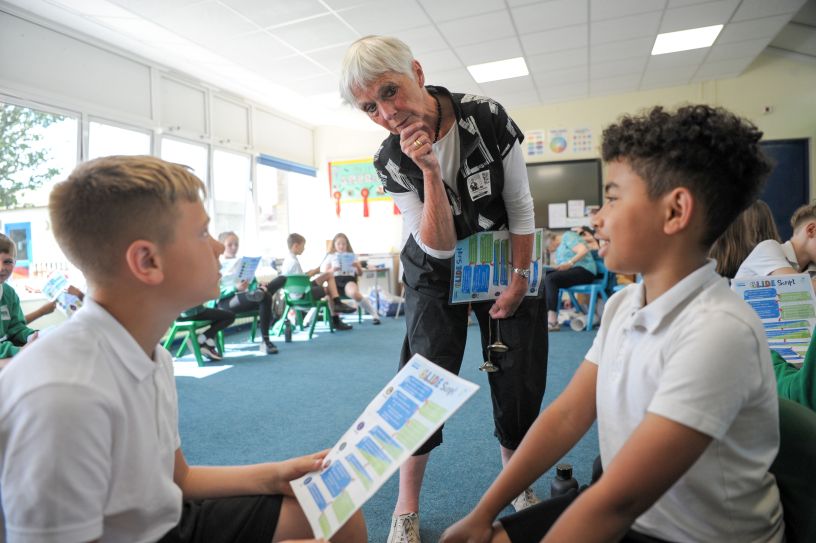Quakers call for peer mediation to be mainstreamed across schools in the UK
Educators and policy makers should mainstream peer mediation, Quakers in Britain says following the publication of a new national report showing its positive impact.

Peer mediation is a process where trained student mediators help their classmates resolve conflicts in a calm, non-judgemental way.
Co-authors of the report, Quakers have been instrumental in expanding this approach across England, Scotland and Wales.
The report, Resolving Conflict in Schools: Peer Mediation as a Foundation for Happier, Healthier Futures, draws on data from 29 schools and eight training providers, collected with the Civil Mediation Council (CMC).
It finds that peer mediation improves the experiences of students, mediators, and staff alike.
Children today face mental health challenges, social media pressures, and fragmented communities, while schools struggle with rising conflicts, teacher burnout, and polarised views.
Peer mediation not only resolves disputes but also tackles the deeper causes of disconnection and misunderstanding.
Key findings from the report include:
- 82% of pupils said peer mediation “made things better for me."
- 89% said they were better at understanding others' feelings.
- 96% of staff reported positive effects from mediation schemes.
- 96% of staff would recommend peer mediation to other schools.
- 77% of staff said peer mediation helped students resolve disputes themselves, reducing teachers' workload.
Ben Harper, Quakers in Britain's national coordinator for peer mediation, said: “In an increasingly polarized world, it is vital for children to learn methods that encourage empathy."
In the past two years, Quakers in Britain have trained 198 people to deliver peer mediation, helped establish 37 new schemes and achieved formal recognition for peer mediators with the CMC. These schemes now reach an additional 5,626 children.
The report recommends seven actions for schools and policymakers, including recognition by the Department for Education in England and the Welsh government.
It calls for conflict resolution to be embedded in teacher training and across the national curriculum, from nursery to higher education.
The report highlights the financial costs of unresolved conflict: poor mental health in young people costs the UK £300 billion annually.
Peer mediation can prevent permanent exclusions, reducing societal costs. One South London school used peer mediation to handle 135 student conflicts, 59 of which could have led to permanent exclusion or prosecution, each with a lifetime cost of £370,000.